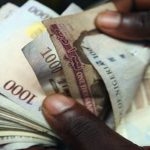
Naira vs USD: CBN Considers Crackdown on Street Trading, Introduces New Guidelines for BDCs.
Amidst the ongoing volatility of the Naira against the US dollar in the foreign exchange market, the Central Bank of Nigeria (CBN) is contemplating measures to curb street trading and implementing fresh guidelines for Bureau De Change (BDC) Operators across the country.
The CBN revealed its intentions on Friday through the release of its draft Revised Regulatory and Supervisory Guidelines for Bureau De Change Operations in Nigeria.
As part of these new guidelines, the CBN plans to set the minimum capital requirements for Tier 1 and Tier 2 BDC licenses at N2 billion and N500 million, respectively. This marks a significant departure from the previous minimum capital requirement of N35 million for a general license.
Under the proposed guidelines, a Tier 1 BDC would be authorized to operate nationwide, establish branches, and potentially appoint franchisees, subject to CBN approval. Additionally, a Tier 1 BDC would oversee its franchisees, who would be required to adopt the franchisor’s name, branding, technology platform, and operational standards.
ALSO SEE: Oyo Gov’t, Anglican Church Agree to Demarcate Cemetery from School Premises
On the other hand, a Tier 2 BDC would be limited to operating within a single state or the Federal Capital Territory (FCT), with a maximum of three locations – a head office and two branches – subject to CBN approval. Tier 2 BDCs would not be permitted to appoint franchisees.
This development comes in the wake of intensified efforts to crackdown on illegal BDCs in Abuja, Lagos, Kano, and Ibadan by the Economic and Financial Crimes Commission (EFCC), aimed at stabilizing the Naira against the USD.
According to reports, at the close of trading on Friday, the Naira weakened further to N1,665.50 per US dollar from N1571.31 on Thursday at the FMDQ market. In the parallel market, the Naira was exchanged at rates ranging between N1,750 to N1,800 per USD on Friday, compared to N1,680.00 on Thursday.
Despite several FX interventions by the CBN in recent months, Nigeria’s foreign exchange crisis persists.

















